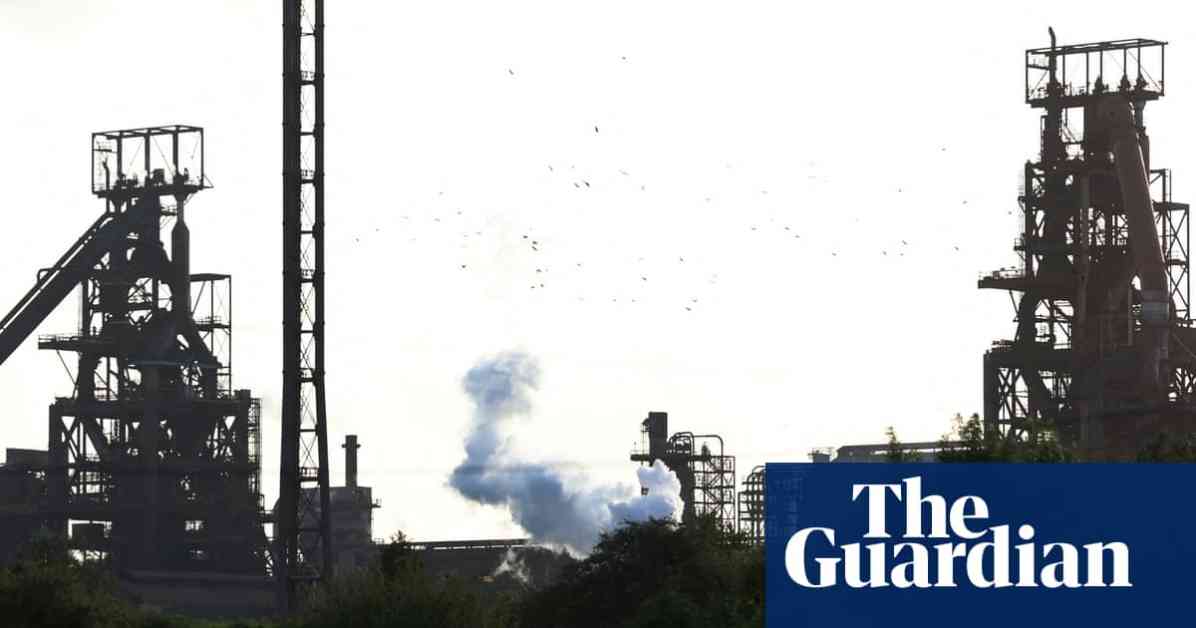The British steel industry is facing a significant shake-up as the government prepares a taxpayer-backed deal for the Port Talbot steelworks, owned by Tata Steel. The business secretary, Jonathan Reynolds, is expected to announce details of a rescue plan that will involve 2,500 job cuts at the historic Welsh plant. This move comes as Tata plans to transition away from polluting blast furnaces to greener, but less labor-intensive, electric arc technology.
The Government Deal
Under the proposed deal, the government will provide £500 million to Tata Steel to build a new electric furnace at the Port Talbot site. In return, Tata is expected to invest £750 million in the plant. However, this investment comes at a cost – the closure of the plant’s last remaining blast furnace, leading to the loss of thousands of jobs. Natarajan Chandrasekaran, the chair of Tata Group, mentioned in an interview with the Financial Times that negotiations with the government were progressing well, indicating that a deal was close to being finalized.
Despite previous promises by the government to push for job guarantees, it seems that 2,500 jobs will still be cut at the Port Talbot steelworks. Additionally, around 2,500 jobs at British Steel’s Scunthorpe site in north Lincolnshire are also at risk. There are concerns that the plant’s Chinese owner may accelerate the closure of blast furnaces at the site before the end of the year.
Impact on the Steel Industry
The shift from blast furnaces to electric arc technology marks a significant change in the steelmaking process in the UK. The closure of the blast furnaces at Port Talbot and Scunthorpe would halt primary steel production in the country, as these facilities produce steel from coal and iron ore. Unions and politicians have raised concerns about the potential economic repercussions of such a move, warning of deep economic scarring in the affected regions.
Tata Steel has long been vocal about the financial challenges of maintaining steel production at the Port Talbot site, citing significant losses. The decision to close the blast furnaces comes as a response to the unsustainable nature of the current operations. The company had announced earlier in the year that it could no longer afford to continue production at the works, which were reportedly losing £1 million per day.
Political Response
The government’s deal with Tata Steel has faced criticism from opposition parties, with concerns raised about the lack of job guarantees in exchange for taxpayer-funded investment. Labour, in particular, had promised to renegotiate the subsidy deal with Tata if elected. The current business secretary, Jonathan Reynolds, had previously criticized the government for not securing job guarantees in the original agreement.
After Labour’s election victory, Reynolds emphasized the importance of securing job guarantees in exchange for public funding. While the current deal with Tata does not include these guarantees, it does involve commitments from both parties to collaborate on future investments in the steelmaking industry across the UK. Labour has pledged additional funds to support the rebuilding of the country’s steel industry, with a focus on ensuring a sustainable future for the sector.
Union Response
Unions have been closely involved in negotiations regarding the future of the steel industry in the UK. A memorandum of understanding (MoU) between Tata Steel and unions has outlined commitments for future investments in UK steel plants, including those in Port Talbot and Llanwern. While the MoU does not guarantee job security, it does offer improved redundancy packages and training opportunities for affected employees.
GMB, a national trade union, has welcomed the enhancements in the MoU and the assurances of future investment in the industry. The union maintains its position against compulsory redundancies and supports the multi-union plan as the best approach for the steel industry. While challenges remain, the union sees the commitments from Tata Steel and the government as a step in the right direction for securing the future of steelmaking in the UK.
Industry Developments
In addition to the changes at Tata Steel’s Port Talbot site, the British Steel plant in Scunthorpe is also facing potential closures. The Chinese owner of British Steel, Jingye, is reportedly considering accelerating plans to shut down its blast furnaces at the Scunthorpe site. Unions had hoped for a support package that would allow one blast furnace to remain operational for three years while a new electric furnace was constructed.
Negotiations between the government and British Steel are ongoing, with an announcement regarding the closure of the furnaces expected in the coming weeks. While concerns about job losses persist, British Steel has stated that no final decisions have been made regarding the future of the plant. The company continues to engage in discussions with the government about decarbonization plans and the operational strategy for its UK business.
Government Response
The Department for Business and Trade has emphasized the importance of steelmaking for the economy and the need for a collaborative approach to securing the industry’s future. The government recognizes the significance of decarbonization in the steel sector and aims to work with trade unions and businesses to ensure a green transition that supports both the workforce and economic growth. While job security remains a concern, the government is committed to safeguarding jobs and steelmaking communities for generations to come.
In conclusion, the proposed changes in the British steel industry, particularly at the Port Talbot and Scunthorpe sites, signal a significant shift in the country’s steelmaking landscape. While job cuts are inevitable as the industry transitions to greener technologies, the focus on future investments and collaboration between stakeholders offers hope for a sustainable and prosperous steel industry in the UK. As negotiations continue and decisions are made, the impact on workers, communities, and the wider economy will be closely monitored.












